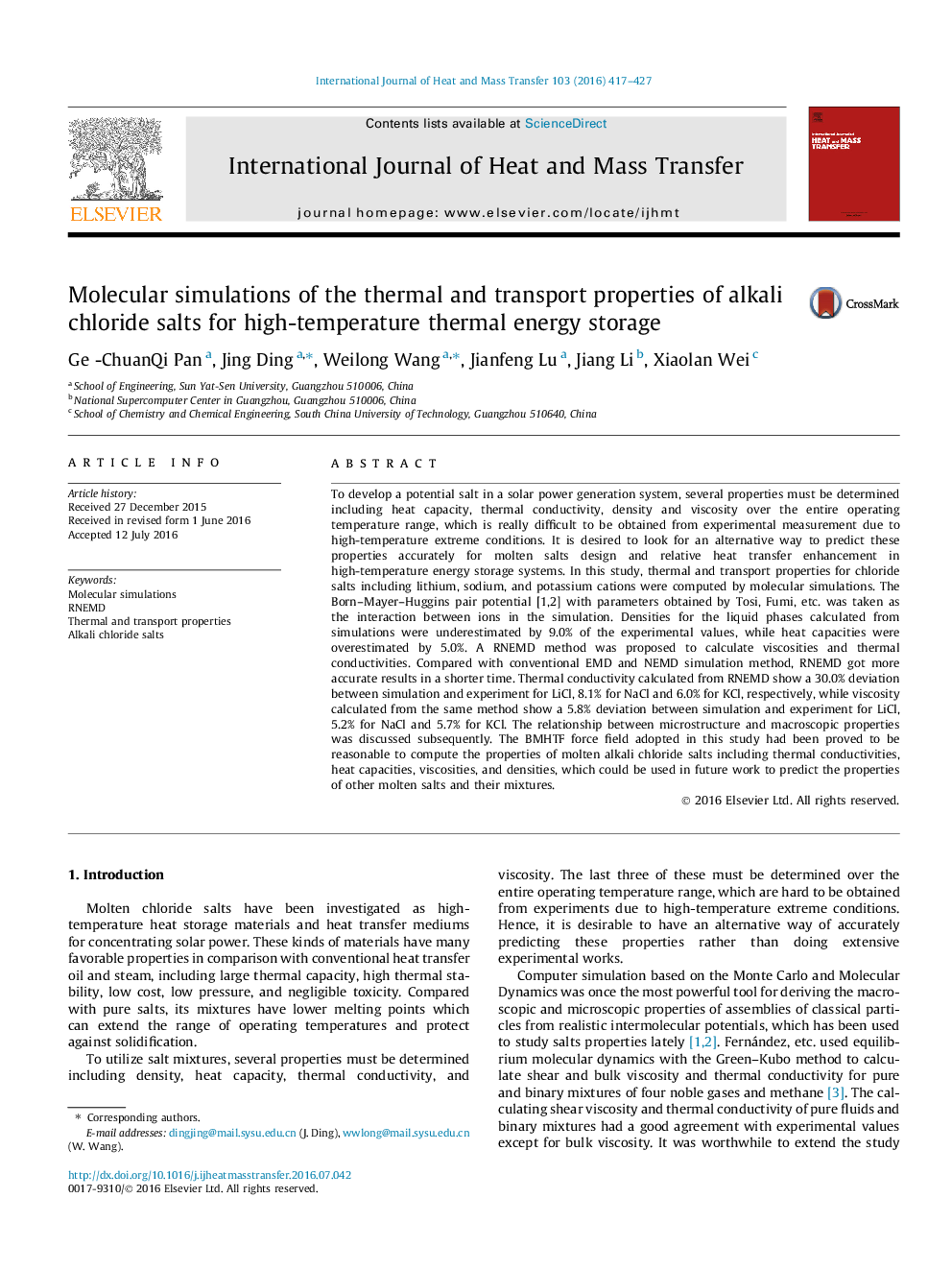| Article ID | Journal | Published Year | Pages | File Type |
|---|---|---|---|---|
| 7055086 | International Journal of Heat and Mass Transfer | 2016 | 11 Pages |
Abstract
To develop a potential salt in a solar power generation system, several properties must be determined including heat capacity, thermal conductivity, density and viscosity over the entire operating temperature range, which is really difficult to be obtained from experimental measurement due to high-temperature extreme conditions. It is desired to look for an alternative way to predict these properties accurately for molten salts design and relative heat transfer enhancement in high-temperature energy storage systems. In this study, thermal and transport properties for chloride salts including lithium, sodium, and potassium cations were computed by molecular simulations. The Born-Mayer-Huggins pair potential [1,2] with parameters obtained by Tosi, Fumi, etc. was taken as the interaction between ions in the simulation. Densities for the liquid phases calculated from simulations were underestimated by 9.0% of the experimental values, while heat capacities were overestimated by 5.0%. A RNEMD method was proposed to calculate viscosities and thermal conductivities. Compared with conventional EMD and NEMD simulation method, RNEMD got more accurate results in a shorter time. Thermal conductivity calculated from RNEMD show a 30.0% deviation between simulation and experiment for LiCl, 8.1% for NaCl and 6.0% for KCl, respectively, while viscosity calculated from the same method show a 5.8% deviation between simulation and experiment for LiCl, 5.2% for NaCl and 5.7% for KCl. The relationship between microstructure and macroscopic properties was discussed subsequently. The BMHTF force field adopted in this study had been proved to be reasonable to compute the properties of molten alkali chloride salts including thermal conductivities, heat capacities, viscosities, and densities, which could be used in future work to predict the properties of other molten salts and their mixtures.
Keywords
Related Topics
Physical Sciences and Engineering
Chemical Engineering
Fluid Flow and Transfer Processes
Authors
Ge -ChuanQi Pan, Jing Ding, Weilong Wang, Jianfeng Lu, Jiang Li, Xiaolan Wei,
